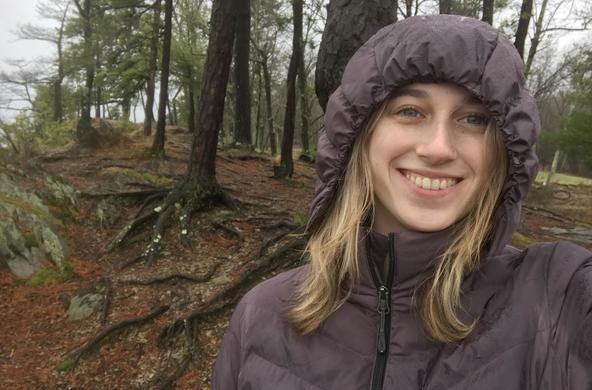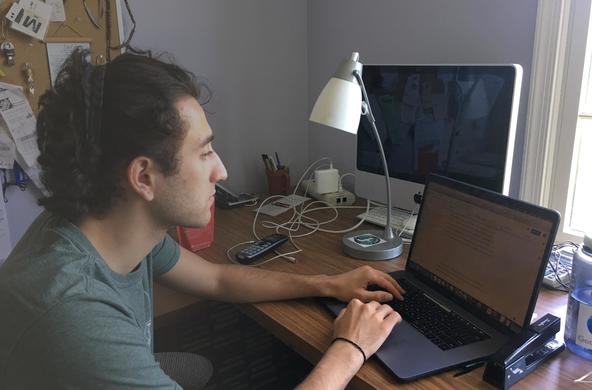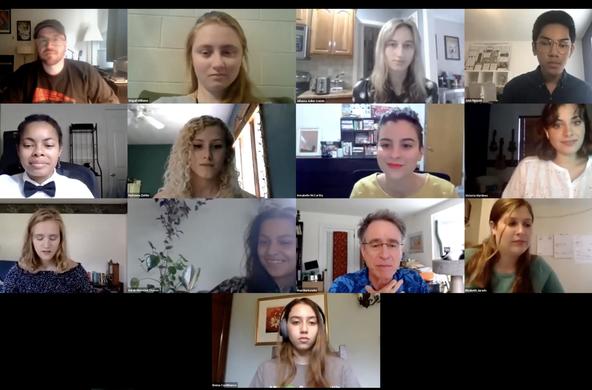A student contribution to the REU blog.
Rivers. Insects. New York.
Those were the three words that came to mind when I thought about my summer plans to undertake a Research Experience for Undergraduates (REU) project with Cary Institute. I was set to collect and study aquatic insects at the Hubbard Brook Experimental Forest in New Hampshire, to learn how they are being impacted by climate change. That was before COVID-19 shifted everyone’s plans. Looking back on the past 12 weeks, three different words surface:
Resiliency. Friendship. Mentorship.
Defined as the ability to adjust to adversity or change, the term ‘resiliency’ has been embraced by everyone involved in Cary’s virtual REU program.
Although we are living in difficult times, I believe we can grow as a result. As someone who feels anxious when presented with uncertainty, I have been constantly tested since the beginning of the COVID-19 pandemic. Waiting for things to go back to normal is frustrating when you don’t know when that will happen, especially if you’re away from family. However, I’m inspired by the other REU students, our mentors, and all the scientists working with us, who continue to do their jobs with optimistic attitudes – and encourage me to do the same.

A personal silver lining to the REU program going virtual was that I got to spend a lot of time learning how to program using R. I know this is a skill I will need throughout my career as a scientist. My project focused on analyzing the effects of the Clean Air Act Amendments of 1990 on stream macroinvertebrate communities in New Hampshire. This required intensive data synthesis. I had to download data from federal and state sources, learn how to ‘clean’ it, and translate my findings visually.
We found that there is a strong correlation between stream pH and mayfly diversity in the streams we studied. Streams with a higher pH are less acidic and are therefore more hospitable to a greater diversity of mayflies. Aquatic insects play an important role in stream ecosystems. They are the base of stream food webs and feed other organisms like fish, birds, and salamanders. Reducing stream acidity can help them thrive. Unfortunately, we found that only 13% of the New Hampshire streams in our study have become less acidic since the passage of the Clean Air Act Amendments of 1990. This indicates that the other drivers of pH, such as land use and possibly climate change, may limit stream recovery to declines in acid deposition in the region.
A special element of this program is the bond that formed among the REU students. Although we could not be together physically, we managed to get to know each other during virtual meetings with the REU program coordinators, Zoom calls with our postdoc mentors, and weekly Google Hangouts on Monday evenings. From the time we were introduced, I felt like I belonged in the group. I’m grateful for the chance to develop these friendships, albeit from afar. I look forward to the day we are able to meet in person.

I am learning that mentorship is one of the most important aspects of a career in science. When I found out that I was a candidate for this position, I was nervous, but very excited.
The pandemic has taught me that empathy and patience are two of the most important values one can have. My mentors, Emma Rosi of Cary Institute and Audrey Thellmen of Duke University, epitomized both as they taught me how to become a better scientist. They were empathic when I struggled, and patient as I learned new skills.
At the beginning of the summer, our program coordinators said that they wanted to make all of us REUs feel like part of the Cary Community. I can say now that they succeeded. They’ve been attentive, kind, and open to feedback. Now more than ever, it is important to be part of a community that lifts you up when you’re down and encourages you to do better. Cary Institute has been that place for me this summer, and I cannot wait to visit in the future.
Victoria Martinez, a student at Barry University, participated in Cary Institute's 2020 Research Experiences for Undergraduates (REU) program.
This summer, Victoria worked with Cary scientist Emma Rosi to study effects of global change on streams of the northeastern US.





